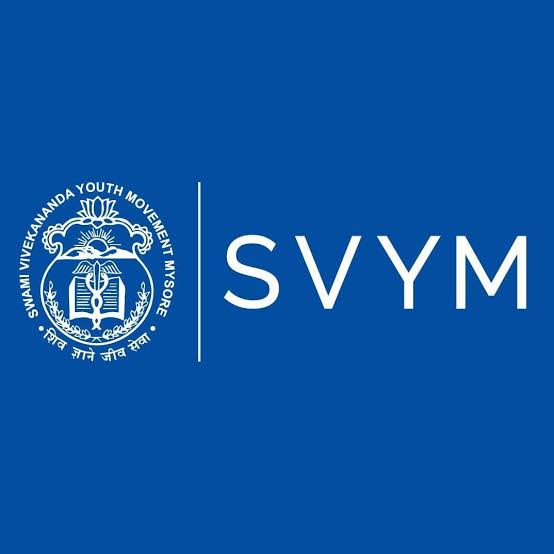Cause Area
Primary Sectors
Secondary Sectors
Financials
-
2020
Total IncomeRs.372,901,982Total ExpensesRs.368,625,550Non Program ExpensesRs.35,839,740Program ExpensesRs.332,785,810Tip: Click on any value above to exclude it. -
2021
Total IncomeRs.346,500,000Total ExpensesRs.346,400,000Non Program ExpensesRs.51,399,367Program ExpensesRs.294,984,493Tip: Click on any value above to exclude it. -
2022
Total IncomeRs.387,400,000Total ExpensesRs.376,700,000Non Program ExpensesRs.42,972,939Program ExpensesRs.333,731,291Tip: Click on any value above to exclude it. -
2023
Total IncomeRs.480,600,000Total ExpensesRs.481,400,000Non Program ExpensesRs.50,068,303Program ExpensesRs.431,365,649Tip: Click on any value above to exclude it. -
2024
Total IncomeRs.597,200,000Total ExpensesRs.594,900,000Tip: Click on any value above to exclude it.
Geographies Served
Programs
-
Socio-economic empowerment
StateStates
Karnataka
SVYM's Socio-Economic Empowerment Program (SEEP) aims to strengthen the social capital of communities, emphasizing their active involvement in development, benefiting from government schemes, and engaging in democratic processes.
SEEP emerged naturally from SVYM's efforts in Health and Education, enabling community members to utilize their human capital collectively for mutual benefit.
The program starts by forming Social Collectives (Self Help Groups), fundamental units of community-driven development. These groups, consisting of rural and tribal women and specially-abled individuals, engage in group savings and rural entrepreneurship through social business units. Over time, these collectives grow into large federations, collaborating to solve problems and promote local development. This approach provides a contextually relevant and culturally appropriate foundation for development. -
Environment and sustainability
StateStates
Karnataka
SVYM collaborates with global partners to ensure water security and reduce water inequity in rural and urban Karnataka. The Water, Sanitation, and Hygiene (WASH) initiative involves individuals, organizations, and the government in action at schools, anganwadi centers, and communities. Children are seen as catalysts of change through a child-to-child, child-to-family, and child-to-community approach.
Additionally, SVYM undertakes renewable energy projects, focusing on solar electrification of villages and remote tribal hamlets to drive their development. -
Education
District
Mysuru
States
Karnataka
SVYM's education initiatives target rural, tribal, and urban students from economically challenged backgrounds. They offer residential education, scholarships for rural meritorious students, technology-based learning in rural Govt. Schools, vocational skills, and health and hygiene through WASH programs. Capacity building of teachers and collaboration with educators and policy makers are crucial focus areas. The tribal residential school, Viveka Tribal Centre for Learning, provides contextually relevant education for children from indigenous tribal communities, specifically Jenu Kuruba, a Particularly Vulnerable Tribal Group.
-
Health
District
Mysuru
States
Karnataka
SVYM's Health Sector aims to enhance human and social capital by providing equitable and accessible healthcare through institution and community-based interventions. Their Rural Secondary Care Specialty Hospital, Vivekananda Memorial Hospital, serves thousands of rural and tribal individuals yearly, acting as a hub for various community health programs spanning different age groups. Their services encompass promotive, preventive, curative, rehabilitative, and palliative care, delivered through home, community, and institution-based services. SVYM's health interventions cover maternal-newborn health, early disease prevention in childhood, support for specially-abled individuals, primary care in remote tribal areas, health and hygiene promotion, screening for non-communicable diseases, and elder care and palliative services, all working in collaboration with the Government Health System.
Registration Details
-
PAN Card
AAATS5045F
-
Registration Number
122/84-85
-
CSR Form 1
CSR00002215
-
80G
AAATS5045FF19844
-
12A
AAATS5045FE20216
-
FCRA
94590102
About
-
Headquarters
Mysuru, Karnataka
-
Since
1984
Impact
SVYM has positively impacted the lives of tribal, rural, vulnerable and marginalized communities across Karnataka through its development approach focused on building human and social capital.
Vision and Mission
Vision: A caring and equitable society free of deprivation and strife. Mission: To facilitate and develop processes that improve the quality of life of people.
Political & Religious Declarations
-
Political Affiliation
-
Religious Affiliation
Location
-
Headquarters
CA-2, KIADB Industrial Housing Area Ring Road, Hebbal, Mysuru - 570 016 Karnataka, INDIA
Directions, Mysuru, Karnataka -
Offices in Cities
Bangalore, Kodagu, Dharwad, Mysore, Hassan, Raichur
Other Details
-
Type
Non-profit
-
Sub Type
Society
Website
Technology Adoption
-
SOC 2 Compliant
No
-
Financial Management
-
Beneficiary Management



